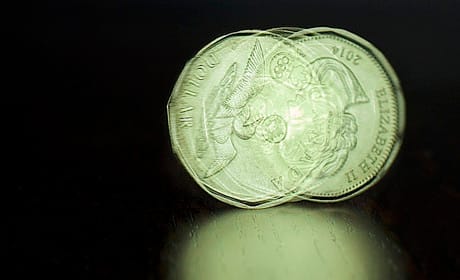Pay-per-article platform Blendle launches in Germany
The Dutch micropayment start-up now has over 400,000 users in Holland and hopes to replicate the success in Germany


The Dutch micropayment start-up now has over 400,000 users in Holland and hopes to replicate the success in Germany

This article was migrated from an old version of our website in 2025. As a result, it might have some low-quality images or non-functioning links - if there's any issues you'd like to see fixed, get in touch with us at info@journalism.co.uk.
Dutch start-up Blendle, a pay-as-you-go news aggregator, launched in Germany today, its first international expansion after going live in the Netherlands last year.
Blendle, described by one of its co-founders as ' the iTunes of journalism ', enables readers to pay for individual articles from national and international publishers – and offers refunds if a reader does not like a story.
Its launch partners in Germany include Der Spiegel, Die Zeit, Süddeutsche Zeitung, Frankfurter Allgemeine Zeitung, The New York Times, The Economist and more.
One thing that we know is people don't pay for the news, but they pay for longer articles. They do not pay for the 'what', but they do pay for the 'why' - Alexander Klöpping, Blendle
Blendle now has over 400,000 registered users in the Netherlands, and one in five top up their accounts. Co-founder Alexander Klöpping hopes to replicate the success in Germany.
"It works a little bit like a snowball. In the beginning, there are a couple of publishers that want to go along and then the snowball starts rolling as the company becomes bigger and bigger," he said.
"That was true in Holland and that's also true in Germany and now, just in the last week, all of a sudden there were many publishers that wanted to sign up at the last moment."
The New York Times, The Wall Street Journal and the Washington Post, alongside Dutch and German titles, are all available through Blendle – the start-up received $3m in funding from The New York Times and Axel Springer last year.
The availability of English-language media on the platform helps Blendle offer a varied collection of articles.
"We're not sure if it increased the number of sign-ups," said Klöpping, explaining that Blendle users might prefer to read in their native language.
"But it's really interesting to see that you can have an article shared by a friend, from a local newspaper, right next to an article from The Wall Street Journal or The Economist, that does some very deep analysis of the refugee crisis.
"It's good for the balance of the platform," he said.
Publishers like The Economist have also been able to increase their subscriber numbers through Blendle, Klöpping claims.
Readers who discover a title through the platform and "become a fan of a single publication" might find it cheaper to buy unlimited access.
And in some cases in the Netherlands, existing subscribers of certain titles can also read them through Blendle.
Blendle Germany has been in a beta stage with about 200 users in the last month and a half, testing out the platform with a new readership before going live.
One difference between Blendle's Dutch users and its new German readers, for example, was that while Dutch users topped up their accounts with 10 euros on average, Germans topped up with about 50 euros during the beta phase.
"I think that's because the catalogue's already bigger from the start in Germany than it was in Holland when we launched," he said.
Longer stories, with word counts between 1000 and 1500 words, were also more popular in Germany.
But if there's one lesson Klöpping can draw from Blendle's activity so far, it's that analysis pieces form "the baseline" of the journalism people are willing to pay for.
"One thing that we know is people don't pay for the news, but they pay for longer articles. They do not pay for the 'what', but they do pay for the 'why'."